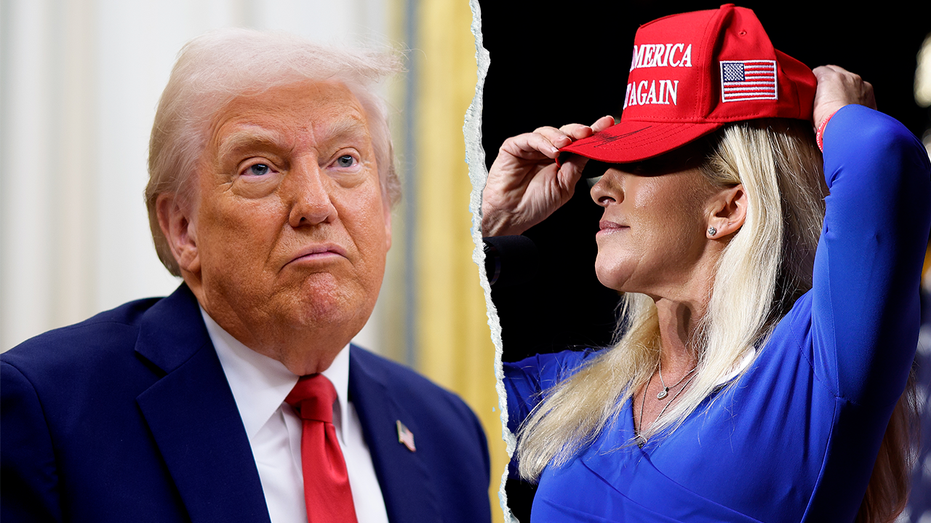Longtime Trump Ally Breaks Silence, Turns Against GOP's 'Big, Beautiful Bill'
Marjorie Taylor Greene admits she didn't read the full One Big Beautiful Bill Act before voting, raising questions about due diligence.

Rep. Marjorie Taylor Greene, a well-known ally of former President Donald Trump, ignited controversy this week when she admitted publicly that she had not read the entirety of the landmark One Big Beautiful Bill Act before casting her vote in favor of it. Greene has now joined the growing ranks of House Republicans who have turned away from the sweeping legislation, despite their initial support and votes just two weeks prior.
The bill, which passed the House by a razor-thin margin after marathon debates and intense closed-door discussions, was heavily promoted by Trump as a centerpiece of his legislative ambitions. Its wide-ranging provisions include border security measures, significant tax cuts, and expanded American energy production. Yet, the very Republican coalition that pushed it over the finish line in the House is now showing deep fractures, prompted by both internal discontent and high-profile criticism from outside voices like Elon Musk.
Rep. Scott Perry, another prominent member of the pro-Trump Freedom Caucus, also expressed regret over voting for the measure. Perry echoed public criticism from Musk, who lambasted House leadership and called attention to the bill’s shortcomings—specifically denouncing it as a "debt bomb ticking" and a "missed opportunity" for conservatives. “We expect MASSIVE improvements from the Senate before it gets back to the House,” Perry declared, reflecting the mounting pressure on Senate Republicans to revise or strip down major sections of the bill before final passage.
Elon Musk’s opposition has become especially significant given his recent departure from his advisory post in the Department of Government Efficiency (DOGE). Now free from official duties, Musk has taken to social media to blast the legislation, describing it as “a disgusting abomination” packed with “massive, outrageous, pork-filled Congressional spending.” He singled out those who voted for the bill, declaring, “Shame on those who voted for it: you know you did wrong. You know it.”
The White House, meanwhile, remains steadfast in its defense. Press Secretary Karoline Leavitt dismissed concerns about Musk’s outspoken criticism, stating unequivocally that the president “already knows where Elon Musk stood on this bill. It doesn’t change the president’s opinion. This is one big, beautiful bill, and he’s sticking to it.” Despite the administration's confidence, resistance in the Senate and among House Republicans continues to build, threatening the legislation’s future.
A central point of contention is the projected financial impact of the act. The Congressional Budget Office warned that while the bill could slash taxes by $3.7 trillion, it would balloon deficits by an estimated $2.4 trillion over the next decade. As national debt figures reached $36.2 trillion this week—a single-day jump of roughly $806 million—fiscal conservatives are seizing on these numbers as proof that the legislation is unsustainable in its present form.
For Greene, the breaking point is not just the fiscal burden, but a newly discovered provision that would prohibit states from regulating artificial intelligence for 10 years. The section in question, buried hundreds of pages into the bill, bars state and local governments from enacting any restrictions, regulations, or oversight over AI systems involved in interstate commerce. “I did not know about this section... that strips states of the right to make laws or regulate AI for 10 years. I am adamantly OPPOSED to this,” Greene said, describing it as a “violation of state rights” and vowing, “I would have voted NO if I had known this was in there.”
Greene is now openly calling for the Senate to excise the AI language, pledging to withhold her support if it remains. “We have no idea what AI will be capable of in the next 10 years, and giving it free rein and tying states’ hands is potentially dangerous. This needs to be stripped out in the Senate. When the OBBB comes back... I will not vote for it with this in it,” she declared, amplifying the uncertainty surrounding the bill's path forward.
As Republican divisions widen, and influential voices inside and outside government step up their critiques, the fate of the One Big Beautiful Bill Act hangs in the balance—its prospects now dependent on how both chambers resolve contentious issues around debt, technology, and the limits of federal power.




